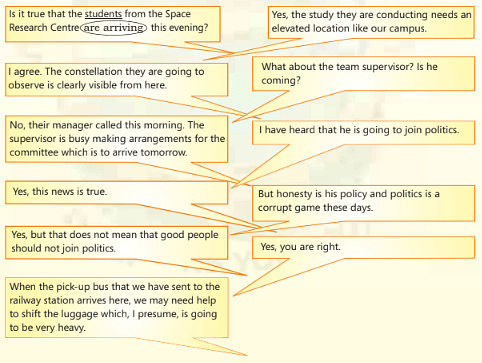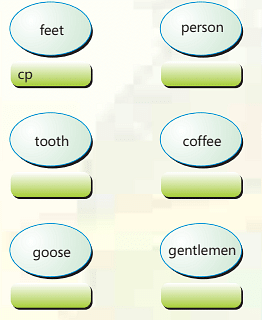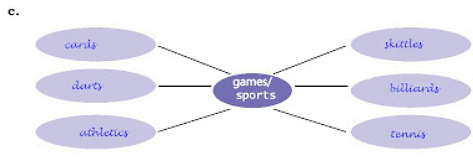Subject-Verb Agreement NCERT Solutions | English Grammar (Communicative) Interact In English Class 10 PDF Download
A.1. Read the following dialogue. First, underline the word or words that represent the subject in each sentence of the dialogue. Then circle the verbs that each subject refers to. (One has been done for you as an example)

Answer:
1. Is it true that the students from the Space Research Centre are arriving this evening?
2. Yes, the study they are conducting needs an elevated location like our campus.
(another one: they-are conducting)
3. I agree. The constellation they are going to observe is clearly visible from here.
4. What about the team supervisor? Is he coming?
(In first sentence verb 'is' is silently referring to subject team supervisor).
5. No, their manager called this morning. The supervisor is busy making arrangements for the committee which is to arrive tomorrow.
6. I have heard that he is going to join politics.
(Since 'that' is joining two sentences, another one is he is going).
7. Yes, this news is true.
(Note: 'is', 'are', 'am', 'be' are known as helping or auxiliary verbs)
8. But honesty is his policy and politics is a corrupt game these days.
(Subject-verb pairs are: honesty - is, politics-is)
9. Yes, but that does not mean that good person should not join politics.
(another one: people-should not join)
10. Yes, you are right.
11. When the pick-up bus that we have sent to the railway station arrives here, we may need help to shift the luggage which, I presume, is going to be very heavy.
A.3 List the subjects from the dialogues in A1 under the following headings.
Answer:
| Countable Singular | Countable Plural | Uncountable |
|---|---|---|
| Study location campus Game bus railway station | students people | politics luggage |
A.4 Work in pairs and decide whether the following are countable singular (cs), countable plural (cp) or uncountable (uc).


Answer:
(a)feet: cp
(b) person: cp
(c) news: cs
(d) oxen: cp
(e) tooth: cs
(f) coffee: uc
(g) knife: cs
(h) boxes: cp
(i) goose: cs
(j) gentlemen: cp
(k) oil: uc
(l) furniture: uc
A.5. Some nouns look as if they are plural, but are in fact singular.
Economics is an important subject at Senior Secondary level.
Some other schools and university subjects work in the same way. Guess which subjects these are from the clues.

Work in pairs and complete the following spider diagrams, a, b and c. All the words will be related to the word in the center. Some clues are given.



All the above nouns look like plurals (i.e. they end in s.) But they are, in fact, singular nouns
Now, complete the sentence :
For these nouns we use a …… verb.
For these nouns, we use a …singular… verb.
A.6. Fill in the blanks with appropriate verbs to complete this biography of Rickety Ron.
Rickety Ron
Rickety Ron is a student of statistics, which for many years.............. been his favorite subject. Ron has always loved playing with numbers. Dramatics........................ his life but every time she takes a role for stage acting, he's mysteriously down with mumps. Mumps ........................ always been his undoing! Ron is no good at games and opts for the least exerting sports of all. So, for him, it's Skittles, darts, and cards. Cards .......................... his favorite, though! He loves aerobics too. Aerobics, to him, ..................... both relaxation and entertainment.
Answer:
RICKETY RON
Rickety Ron is a student of statistics, which for many years…has….. been his favorite subject. Ron has always loved playing with numbers. Dramatics …is… his life but every time he takes a role for stage acting, he's mysteriously down with mumps. Mumps …has… always been his undoing! Ron is no good at games and opts for the least exerting sports of all. So, for him, it's Skittles, darts, and cards. Cards …is.. his favorite, though! He loves aerobics too. Aerobics, to him, …is… both relaxation and entertainment.
A.7. Work in pairs. Take turns to ask and answer the following.
Answer:
| Questions | Answers |
|---|---|
| 1. What are shears used for? | 1. They are used for gardening. |
| 2. Have you got the binoculars? | 2. No, I don't have them here. Do you have them? |
| 3. What are pliers made of? | 3. They are made of steel. |
| 4. How much this pair of jeans cost? | 4. A pair of jeans cost me Rupees eight hundred. |
| 5. Are your socks matching with shoes? | 5. Yes, they are. |
| 6. What are tongs used for? | 6. Tongs are used to pick up hot vessels. |
| 7. Are your goggles dark? | 7. My goggles are photochromatic. |
| 8. Which color of slacks are not allowed in school? | 8. Black slacks are not allowed in school. |
| 9. What are scissors used for? | 9. Scissors are used for cutting cloth. |
| 10. Can you lend me your compasses? | 10. Yes, I can, they are in my school bag. |
All the nouns in the above sentences take the_plural_ verb.
B Verbs - singular or plural
Look at the following two sentences. Which one is correct?
a) The jury was divided in their opinion.
b) The jury was unanimous in their decision.
Ans.
a) The jury was divided in their opinion. ✔
b) The jury was unanimous in their decision. ✔
B.2. Tick the correct form of the verb in the following sentences:
1. Summons was/were sent for his arrest.
2. The media has/have become more responsible nowadays.
3. This news was/was broadcast from All India Radio.
4. Politics is/are not meant for students.
5. To an outsider the economics of this company seem/seems to be in a shambles. (Hint: economics here refers to the company's financial status)
6. The staff is/are happy with their working environment.
7. Skittles is/are a popular game in India these days.
8. Harsh's spectacles were/were lost on his journey to Manipal.
9. Mathematics is/are a compulsory subject for under-graduation in most of the science and commerce streams.
10. The public was/was jubilant when Sachin Tendulkar scored his 50th century.
Answer:
- Summons were sent for his arrest.
- The media has become more responsible nowadays.
- This news was broadcast from All India Radio.
- Politics is not meant for students.
- To an outsider, the economics of this company seems to be in a shambles. (Hint: economics here refers to the company's financial status)
- The staff is happy with their working environment.
- Skittles is a popular game in India these days.
- Harsh's spectacles were lost on his journey to Manipal.
- Mathematics is a compulsory subject for under-graduation in most of the science and commerce streams.
- The public was jubilant when Sachin Tendulkar scored his 50th century.
B.4. Circle the subject and connect it with a verb which follows it
1. The boy whom you saw walking on the road yesterday while returning from school is my brother.
2. The book you wanted to read is not available right now.
3. The furniture which was bought in the auction is made of solid teak-wood.
4. The team which won four matches this year has been nominated for the President's award.
5. A visit to the various monasteries provides an insight into Buddhism.
Ans.
- The boy whom you saw walking on the road yesterday while returning from school is my brother.
- The book you wanted to read is not available right now.
- The furniture which was bought in the auction is made of solid teak-wood.
- The team which won four matches this year has been nominated for the President's award.
- A visit to the various monasteries provides an insight into Buddhism.
C. Subject - Verb Agreement - Summary.
Read the following sentences. Each of them contains one error. Correct the error and complete the statements that are marked *:
1. One of my friends have gone to Canada.
2. Every one of the managers have applied for leave today in protest against the management.
3. Neither of the boxers were able to score a decisive victory:
Statement *: Subjects containing 'one of', 'each of', 'every one of' and 'neither of' are followed by ____verbs.
4. Tobacco and alcohol is injurious to health.
5. He and I was at Patna University together.
6. Oil and water does not mix.
Statement * : Two or more Singular Nouns connected by 'and' are normally followed by a _____verb.
7. Age and experience bring wisdom to man.
8. Slow and steady win the race.
9. Bread and Butter are what the poor want.
Statement *: When two Singular Nouns connected by 'and' express one idea, they are followed by a ______________verb.
10. My uncle and guardian want me to start my own business.
11. The Collector and District Magistrate are away.
12. The notable patriot and orator are no more.
13. The industrialist and the politician has been invited to the function.
Statement *: When two Singular Nouns are connected by 'and' and a determiner is used before only one noun, they are followed by a ____________ verb. If the two nouns refer to two different things/ persons, the determiner should be repeated and the verb should be used in the ___
14. Neither Raju nor Sheela have come first in the race.
15. No scholarship or reward were given to the student who stood first in the examination.
16. Either China or Malaysia have the chance to win the world cup in badminton.
Statement * When Singular Subjects are connected by 'or', 'neither............. nor' and 'either............... or', they are followed by a ___________verb.
17. Neither he nor I has any objection to your plan.
18. Either you or Rashmi have to own the responsibility for the mishap.
Statement * : When the subjects connected by 'or' or 'nor' are of different persons, the verb should agree in person with the subject _____________ to it.
Answer:
1. One of my friends have has gone to Canada.
2. Every one of the managers have has applied for leave today in protest against the management.
3. Neither of the boxers were was able to score a decisive victory.
Statement *: Subjects containing 'one of', 'each of', 'every one of' and 'neither of' are followed by _Singular__verbs.
4. Tobacco and alcohol is are injurious to health.
5. He and I was were at Patna University together.
6. Oil and water does do not mix.
Statement * : Two or more Singular Nouns connected by 'and' are normally followed by a _plural__verb.
7. Age and experience bring brings wisdom to man.
8. Slow and steady win wins the race.
9. Bread and Butter are is what the poor want.
Statement *: When two Singular Nouns connected by 'and' express one idea, they are followed by a _singular__verb.
10. My uncle and guardian want wants me to start my own business.
11. The Collector and District Magistrate are is away.
12. The notable patriot and orator are is no more.
13. The industrialist and the politician has have been invited to the function.
Statement *: When two Singular Nouns are connected by 'and' and a determiner is used before only one noun, they are followed by a _singular__ verb. If the two nouns refer to two different things/ persons, the determiner should be repeated and the verb should be used in the _plural_.
14. Neither Raju nor Sheela have has come first in the race.
15. No scholarship or reward were was given to the student who stood first in the examination.
16. Either China or Malaysia have has the chance to win the world cup in badminton.
Statement * When Singular Subjects are connected by 'or', 'neither…………. nor' and 'either…………… or', they are followed by a __singular__verb.
17. Neither he nor I has have any objection to your plan.
18. Either you or Rashmi have has to own the responsibility for the mishap.
Statement *: When the subjects connected by 'or' or 'nor' are of different persons, the verb should agree in person with the subject _nearest/closer__ to it.
FAQs on Subject-Verb Agreement NCERT Solutions - English Grammar (Communicative) Interact In English Class 10
| 1. What is subject-verb agreement? |  |
| 2. What are some common errors in subject-verb agreement? |  |
| 3. How can I avoid subject-verb agreement errors in my writing? |  |
| 4. Can subject-verb agreement affect the meaning of a sentence? |  |
| 5. Are there any exceptions to the subject-verb agreement rule? |  |
|
50 docs|2 tests
|

|
Explore Courses for Class 10 exam
|

|


















